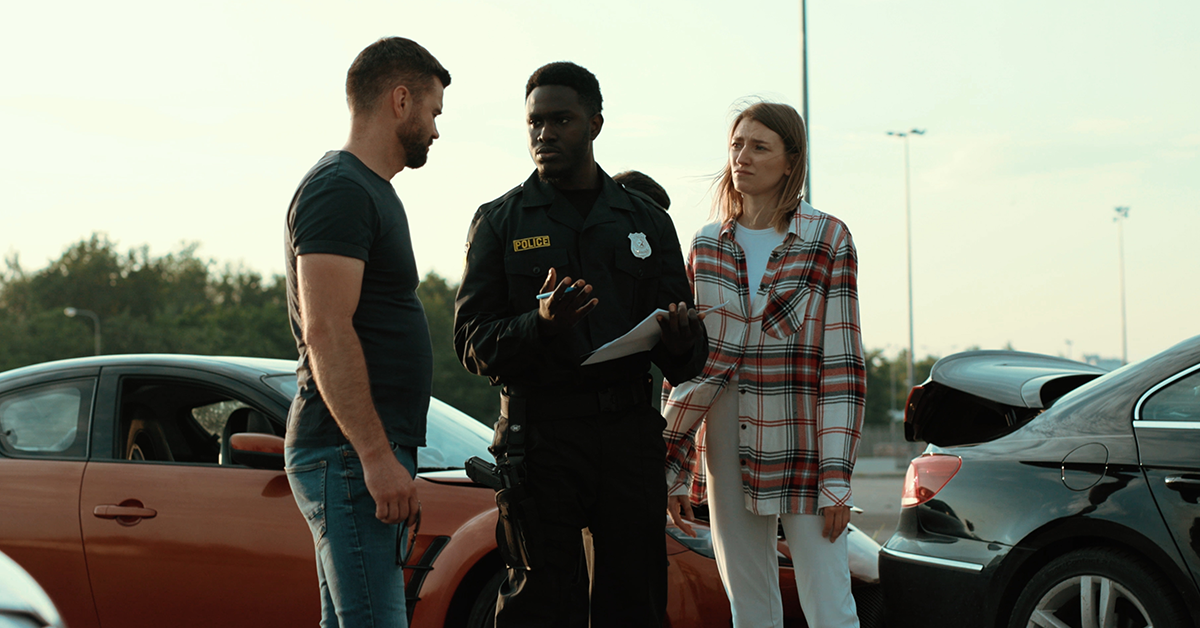Fault can play a significant role in a car accident claim. When a negligent driver causes a wreck that leaves other motorists with injuries, those motorists may file claims or lawsuits to seek compensation accordingly. Thus, determining who caused a crash is vital.
Watch The Video
So is calling the police when a wreck occurs. Even after a seemingly minor crash, it’s important to call the police and report the accident. Depending on whether the collision resulted in bodily injury or significant property damage, reporting it to the police may be a legal requirement.
Unfortunately, police can make errors. An officer might make a mistake that paints you as the individual who caused the wreck. Or, they may at least suggest you contributed to it, which would influence how much compensation you’re eligible to receive.
A similar circumstance might involve a police officer issuing you a ticket after a collision. If the cops issue a citation, it might naturally appear as though you’re the one responsible for a crash.
That’s not always the case. Even if the police incorrectly blame you for a wreck, that doesn’t mean you will be unable to receive compensation.
Important Information About No-Fault Car Crash Laws in Massachusetts
It’s worth noting that whether the matter of fault plays a role in your claim can depend on the severity of your injuries if you were hurt in a Massachusetts car wreck. That’s because Massachusetts is one of a few states using the no-fault car wreck system.
In most states, when a crash victim wants to seek compensation for car accident injuries, they can do so by filing a claim with the insurance of the driver who caused the wreck. They may file a lawsuit when a driver doesn’t have insurance or their insurance company refuses to offer a fair settlement.
The process is different in a no-fault state. In Massachusetts, when registering a car, you need to purchase your own personal injury protection (PIP) coverage. Your PIP insurance is responsible for compensating you after collisions. Even if someone else causes a crash, you must first seek compensation by filing a claim with your insurance.
However, if your injuries are severe enough to meet a certain threshold under Massachusetts law, you can file a separate claim or lawsuit against the negligent party responsible for the crash. Speak with a lawyer if you’re not sure whether you have justification to file a third-party claim or lawsuit. They can explain your options and help you gather evidence proving negligence if you do have grounds to file a separate fault-based claim.
Negligence per se is a legal doctrine stating a plaintiff doesn’t need to prove negligence when they were injured while a defendant was violating a law designed to keep them safe.
How Police Perspectives Can Influence a Car Accident Claim
Negligence per se is a legal doctrine stating a plaintiff doesn’t need to prove negligence when they were injured while a defendant was violating a law designed to keep them safe. If a police officer issued you a ticket immediately after or before a wreck, you might assume negligence per se dictates you will be automatically considered liable.
In some states, like Massachusetts, the violation typically serves only as a “rebuttable presumption” rather than negligence per se, meaning that it may serve as evidence of negligence, but that evidence can be contradicted by other evidence presented.
Negligence per se (or a rebuttable presumption) only applies when someone breaks a law that serves to protect others from harm, and is related to causation in the particular accident at issue. . For example, negligence per se may apply if someone involved in a motor vehicle crash received a ticket for speeding. Speed limit laws exist specifically to ensure everyone’s safety on the road.
However, maybe someone receives a ticket for a non-moving violation, like an expired registration. This factor plays no role in a wreck. As such, negligence per se might not apply.
In addition, there are many other forms of evidence that can potentially play a significant role in determining how fault is assigned after a wreck. The police report is only one piece of evidence. Other potential forms of evidence include:
- Witness statements
- Photos of the crash
- Footage of the crash
- Forensic evidence
In some cases, attorneys even hire experts to restage crash conditions. Doing so can help show how a wreck occurred.
The main point to understand is that the police issuing you a ticket or otherwise indicating you may be at-fault for a crash doesn’t always guarantee you won’t receive compensation when filing a third-party claim or lawsuit. It also doesn’t guarantee that other parties will be able to successfully file claims or lawsuits against you.
At Swartz & Swartz, P.C., a Massachusetts car accident attorney is on hand to explain these matters in greater detail. We can offer the representation you need when seeking compensation after a collision. Get started today by contacting us online or calling us at (617) 742-1900 to schedule your free consultation.
Need Help?
If you or someone you know, needs help from a lawyer, contact the law offices of Swartz & Swartz, use our live chat, or send us a message using the form below and we’ll get in touch to assess your case and how we can help.
Keep Reading
Want more? Here are some other blog posts you might be interested in.




